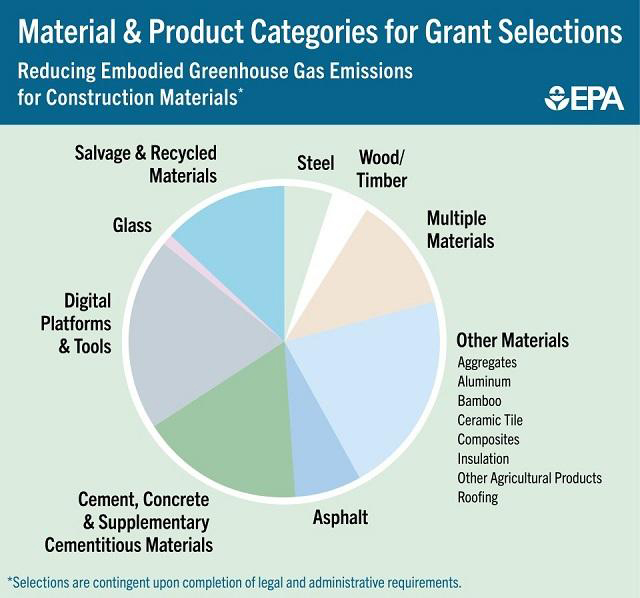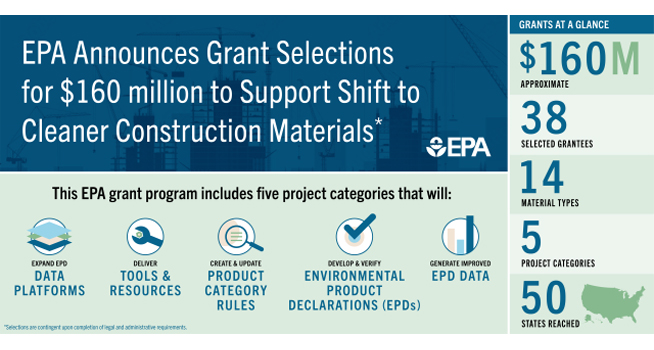On July 16, 2024, the U.S. Environmental Protection Agency announced the selection of 38 grant recipients across the country, totalling nearly USD160 million in funds from the Inflation Reduction Act (IRA).
The National Glass Association (NGA) has been selected for a USD 2.1 million grant to help advance the availability and quality of Environmental Product Declarations (EPD) for architectural glass, facilitate improved environmental transparency and support efforts to reduce embodied greenhouse gas emissions in the construction industry. NGA and other recipient organizations are a part of an important collective to address climate change with construction material EPD projects.

EPA estimates that the construction materials used in buildings and other built infrastructure account for more than 15 percent of annual global greenhouse gas emissions.
According to the EPA announcement, “The U.S. leads the world in the production of clean construction materials, and these transformative awards from President Biden’s Inflation Reduction Act…will reduce climate pollution by helping businesses measure the carbon emissions associated with extracting, transporting and manufacturing their products.”
NGA’s VP of Advocacy and Technical Services, Urmilla Sowell, stated, “The grant will enable NGA to collect regionalized life-cycle inventory data for primary flat glass, develop a tool to generate EPDs to streamline the creation of processed glass EPDs, and provide technical and financial assistance to glass fabricators for processed glass EPDs. Additionally, it will gather end-of-life life-cycle assessment data to enhance understanding of glass recycling and its environmental impacts. We will present more details on this new NGA initiative to the attendees of the NGA Glass Conference: Milwaukee, on August 6 at 1:15 pm CT.”
Ranging from USD 250,000 to 10 million, the grants will help businesses develop robust, high-quality EPDs, across 14 material categories. According to EPA, “These efforts will help standardize and expand the market for construction products with lower greenhouse gas emissions. They will make it easier for federal, state and local governments and other institutional buyers to ensure the construction projects they fund use more climate-friendly products and materials.”





